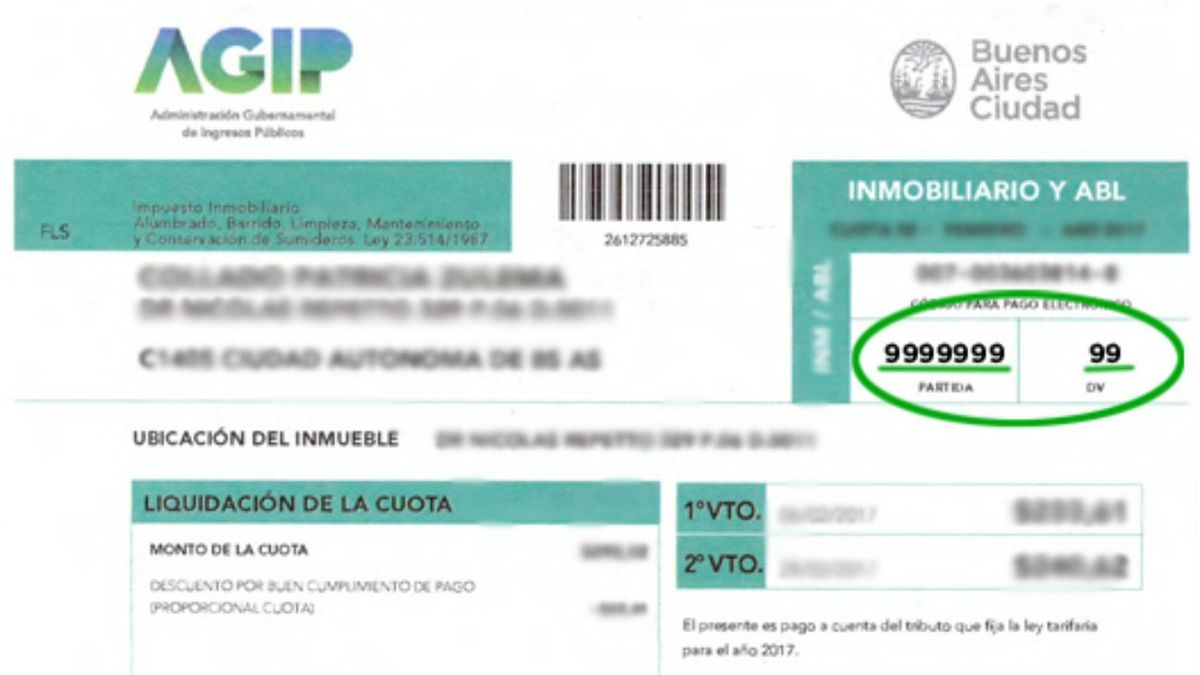Through a decree, the Head of Government, Jorge Macri, established a significant reduction in the amounts that Buenos Aires residents must pay for judicial management to the leaders for the regularization of debts with the City in services such as ABL, Patents or Gross Income.
“The objective of these measures is to find more balanced, fairer mechanisms so that residents can catch up with debts they have with the City, delinquent debts that they have contracted, but that also have to do with the economic context in which they live. “we live,” said Jorge Macri at community headquarters 12 together with the Minister of Justice, Gabino Tapia, and the City Attorney, Martín Ocampo, and Germán Krivocapich, general coordinator of AGIP.
In the City there are about 657 thousand AGIP trials that are involved in judicial operations with leaders.
The Head of Government maintained that “the culture of paying and complying with taxes in the city of Buenos Aires is very high, but when there are deep crises, many, many times, stumble and are left with debts,” and warned that “that generated a mechanism that is complex and sometimes even unfair, especially when it comes to small debts.”
WhatsApp Image 2024-05-08 at 08.55.03.jpeg
The decision aims to provide solutions to the current regime, which has caused many residents to end up adding disproportionate sums due to these judicial efforts carried out by the leaders. In some cases, even, with fee figures that have exceeded debts by 260%.
The Head of Government explained what usually happens with this type of debt when they are prosecuted: “The summons arrives and a representative intervenes who has a fee mechanism that did not depend on us, but on what is defined by the judicial system, which is called UMA, and that generated very large distortions”.
“For example, a neighbor with a debt of $50,000 has to pay a sum of up to $235,000 for the upgrade of the UMA units,” he stated and stressed: “Now we are changing that system and we are putting a percentage criterion on it.” “This means that the percentage that will be paid to the agent is 20%. If you owe $50,000, you will pay $10,000 for that debt, which is absolutely reasonable.”
taxes-salaries-calculator-expense-adjustment-afip-monotributo.jpg

Depositphotos
Today, residents who have debts with the City Government for services, such as ABL, Patents and Gross Income, are assigned to a representative to carry out the judicial process to collect the debt.
The president has guaranteed a minimum fee subject to the Tariff Measurement Unit -UMA, currently $68,285- and that value has been distorting the proportion between the debt and the cost for the work performed, which became much higher than the debt. .
The decree with the changes was published in the Official Gazette.
What is the new moratorium in CABA for debt payment like?
The change promoted by the Head of Government’s decree imposes a limit and that reasonable amounts be paid in fees. If the fee is greater than the debt, a limit is set: it cannot be more than 20%.
Another important point that is modified is that from now on all debts are unified into a single judicial claim and fees will be paid to a single representative. Until now, if someone had debts for three different services, they were referred by the AGIP to three different representatives.
As an example, if a patent debt with unpaid obligations for three years, 2020, 2021 and 2022, with estimated amounts of $50 thousand per year is taken as a reference, a neighbor today has to face three different lawsuits, which are assigned to three different lawyers. And he must pay each of them the minimum stipulated fee.
With the new provision, you will pay what corresponds to the debt, but the value of the fees is reduced to $120 thousand.
Likewise, through a provision of the AGIP, the minimum amounts of judicializable debts are raised, which are those taken by the leaders. In the case of Real Estate/ABL and Patent taxes, the current minimum amount is $148,900 and it is proposed to raise it to $200 thousand, 34% more.
Simultaneously, a bill will be sent to the Legislature both to raise these minimum amounts of judicializable debts and for the forgiveness of debts of very minor value whose execution is uneconomical for the City.
Source: Ambito




